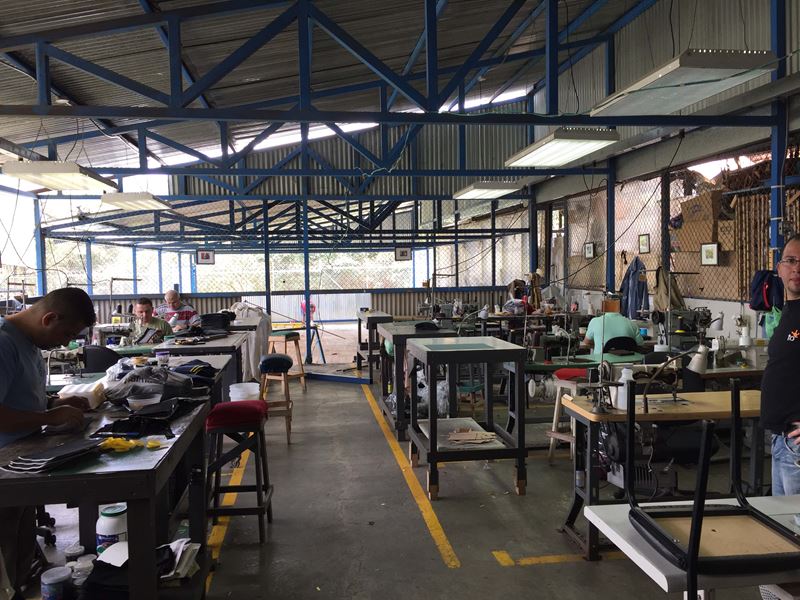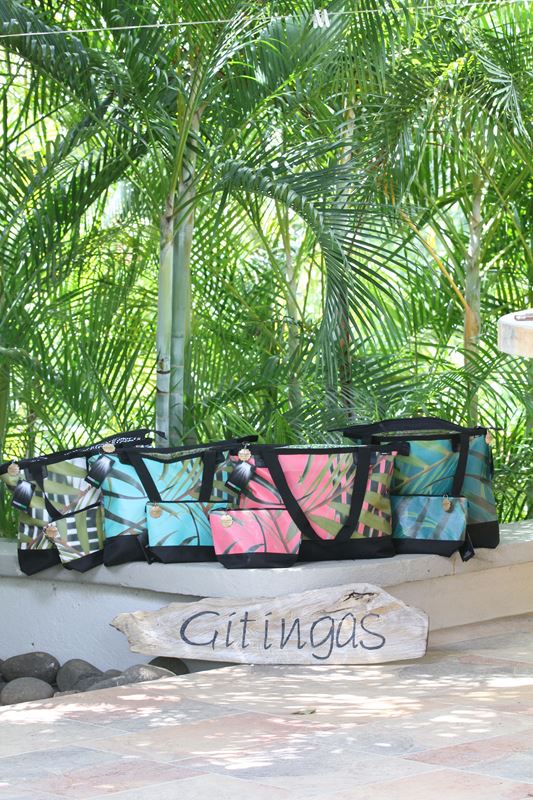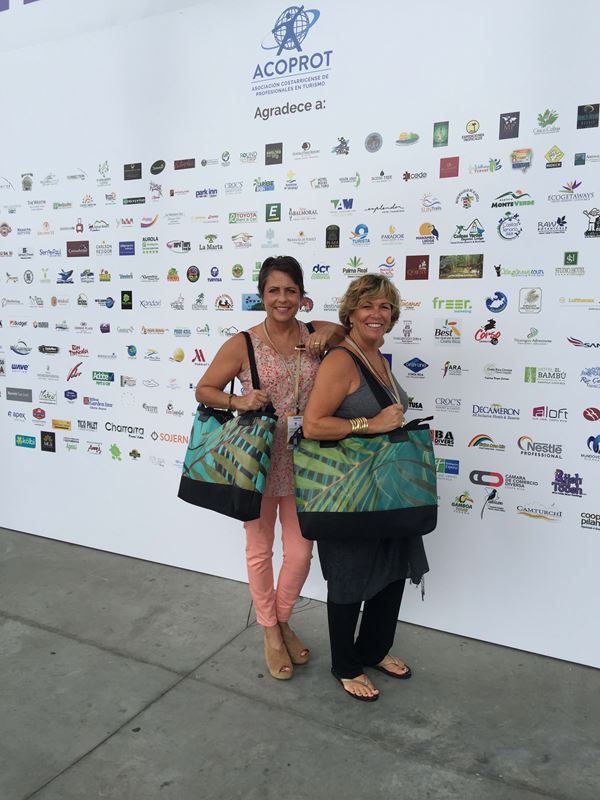
Lifestyle Feature – Beach Bags & The Bad Boys
CHANGING COSTA RICA’S CRIMINAL JUSTICE SYSTEM
Aunique collaboration between artistic and socially conscious business interests is changing the Costa Rican criminal justice system, one beach bag at a time.
Playa del Coco-based entrepreneurs Lisa Martin and Rhonda Cardella are the creative minds behind Gitingas handbags. Their designs draw upon natural imagery and local Costa Rican elements befitting the brand slogan “because every wanderer needs a bag”. They consider their so-called Ultimate Beach Bag to represent a perfect marriage of function and aesthetics. Above and beyond customer appeal in that regard, these stylish, high-end bags are the cornerstone of a program whose ultimate goal is to reduce the percentage of re-offenders in Costa Rica’s prison population.
To that end, Martin and Cardella have teamed up with the national organization Project Hope in promoting both skills building and society reintegration among Costa Rica inmates whose future life on the outside is at stake. Participating inmates improve their chances of staying out of prison after release by becoming micro-entrepreneurs in the manufacture of Ultimate Beach Bags under subcontract with Gitingas and Project Hope.
The skills they acquire such as manual dexterity, artistry, and business acumen serve as a strong foundation for societal reintegration.
In the short term, involvement in the program allows inmates to establish a source of income for their family while imprisoned. With that comes the expectation they remain dedicated after serving time to upholding this position of stature and responsibility within their family and community.
The program seems to be working. Prisoner Hope reports that no former inmates have reoffended after participating. Instead, strengthening of the family bond is observed when former inmates succeed in becoming fruitful providers. Children are given a powerful example of the merits of education, training, and work, reducing the chance of generational crime.
To qualify for the program, Project Hope requires that inmates demonstrate their willingness to work and level of dexterity in the production area they are interested in. Those selected undergo a rigorous apprenticeship before earning a role within the organization. They are rewarded with excellent work conditions and some of the latest textile industry technology. Work hours are at their own discretion and wages paid at competitive rates. Inmates who have served their term are eligible to continue earning a living through the program, benefitting from the entrepreneurial skills and equipment acquired.
Social enterprise initiatives like Costa Rica’s Ultimate Beach Bag are becoming more common around the world in many different contexts. What they have in common as profit-generating entities is a social purpose in giving people who are marginalized by gender, socio-economic status, age, or disability the chance to thrive in society. While producing desirable commodities from a marketing standpoint, the value of each product sold goes well beyond its price tag and material status in terms of building confidence and self-worth.
Promising examples of social enterprise in criminal justice systems abound globally. From inmate-manufactured bouquets presented to winning athletes in the 2010 Olympics to production of high-end textiles in Mexican prisons, there is no lack of compelling evidence that such rehabilitative approaches work better than punitive approaches when it comes to reducing repeat offender crime rates.


